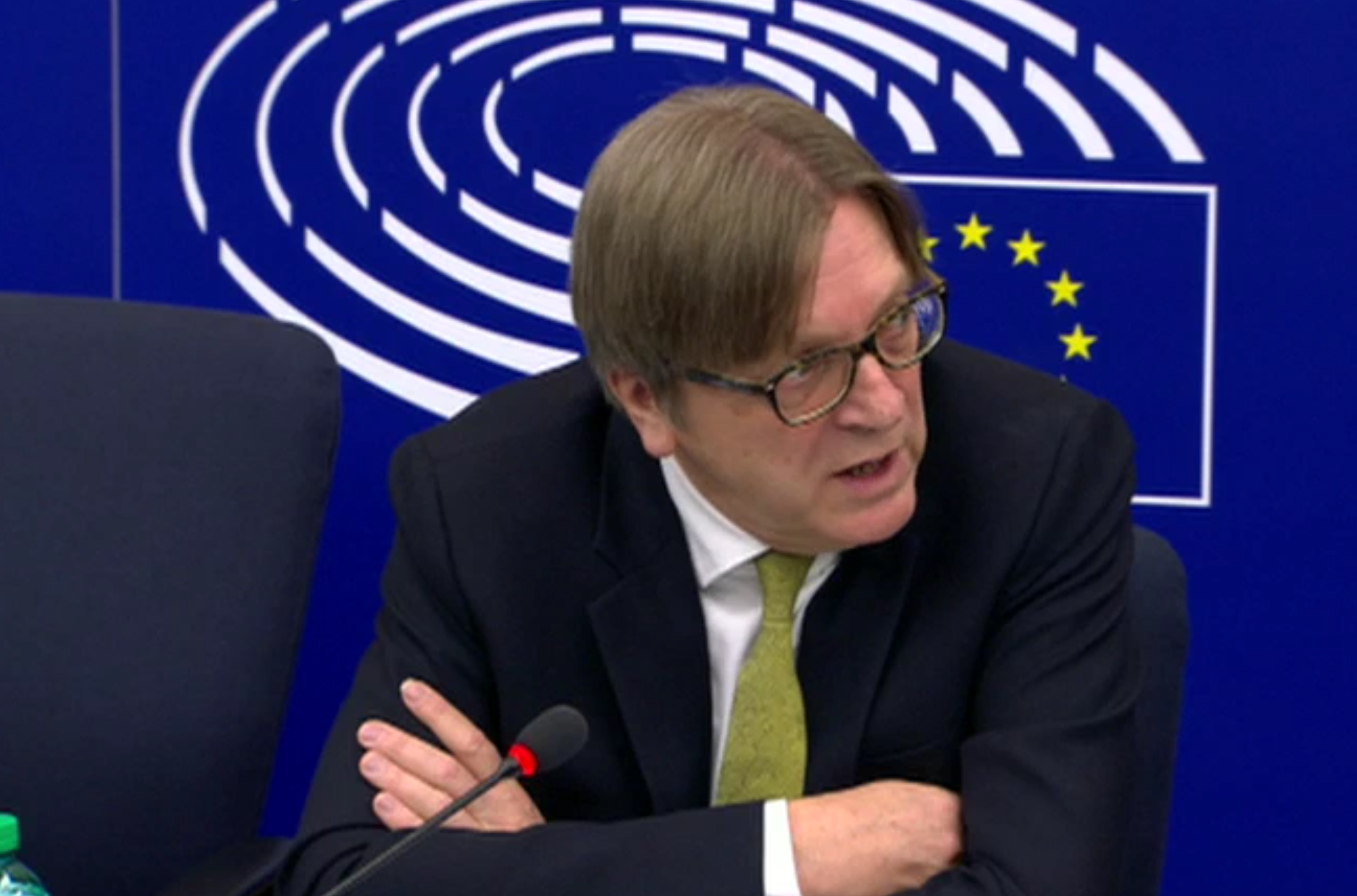Your support helps us to tell the story
From reproductive rights to climate change to Big Tech, The Independent is on the ground when the story is developing. Whether it's investigating the financials of Elon Musk's pro-Trump PAC or producing our latest documentary, 'The A Word', which shines a light on the American women fighting for reproductive rights, we know how important it is to parse out the facts from the messaging.
At such a critical moment in US history, we need reporters on the ground. Your donation allows us to keep sending journalists to speak to both sides of the story.
The Independent is trusted by Americans across the entire political spectrum. And unlike many other quality news outlets, we choose not to lock Americans out of our reporting and analysis with paywalls. We believe quality journalism should be available to everyone, paid for by those who can afford it.
Your support makes all the difference.European politicians have reacted with relief at Theresa May’s move to hold talks with Labour on her Brexit deal, but warned that the “short” delay she wants to Article 50 may not be an option.
Guy Verhofstadt, the European Parliament’s Brexit coordinator, said it was “better late than never” that the prime minister had asked to sit down with Jeremy Corbyn to find a solution, and that it was “good that PM is looking for a cross-party compromise”.
But the message from Berlin was less welcoming. Norbert Röttgen, a senior ally of Angela Merkel who chairs the German parliament’s powerful foreign affairs committee, said the EU should reject any request for a short delay.
“In the current situation of deep institutional deadlock, there is no point in asking for another short delay of Brexit,” he said.
“The second meaningful vote has shown that further assurances in political declaration won't do the trick. EU should insist on long extension with participation in EU elections.”
The German politician’s comments echo those of senior EU officials in recent weeks, who have said that any further extension would have to be long – perhaps until the end of the year – to prevent a situation where the bloc was constantly having to agree to extend the deadline.
Dublin was more supportive of the idea, however. Simon Coveney, the Irish deputy prime minister, told state broadcaster RTE: "They will look for a short extension next week, and I think Ireland will support that.
"It is very unlikely that there will be any crash out at the end of next week with the prime minister looking for an extension with a plan to go with that."
All member states must unanimously agree an extension to Article 50, however – meaning that the most sceptical member states must be won over.
If MPs do not pass the Brexit deal before 12 April the UK will crash out without a deal, with substantial economic damage expected – but MPs have now rejected the prime minister’s plan three times. A series of votes held over the last week failed to find another solution, though they showed there was significant support in parliament for a softer Brexit with a customs union, single market access – and even a second referendum.
The prime minister on Tuesday evening said she would take “action to break the log-jam” and “sit down with the leader of the opposition and to try to agree a plan”. Mr Corbyn said he would be “very happy to meet the prime minister”.

In Brussels, the developments were met with caution. On the subject of a short extension, one EU official told The Independent: “Let’s first see what comes out of London in terms of request or an indicated way forward. Then it'll be for the EU27 to consider.”
EU leaders will meet in Brussels yet again on Wednesday next week to consider the UK's request for an extension. The bloc has made clear that at the very least the UK would have to participate in European Parliament elections scheduled for April if it wants another delay.
The prime minister’s overtures to Labour comes after senior EU figures, including chief negotiator Michel Barnier and French president Emmanuel Macron, said another extension to Article 50 could only be granted if the UK came up with a good reason for one.
Mr Macron suggested possible justifications for another extension might be “new elections, a referendum or different selection to the future relationship such as a customs union”.
Leo Varadkar, the Irish prime minister told reporters: “I think we need to be open to any proposals that she [Theresa May] may bring forward to us.
“We’ll need to consider how we may respond to any UK request for the extension. We want to avoid a rolling extension so any extension must have a clear purpose and a clear plan.”

Join our commenting forum
Join thought-provoking conversations, follow other Independent readers and see their replies
Comments